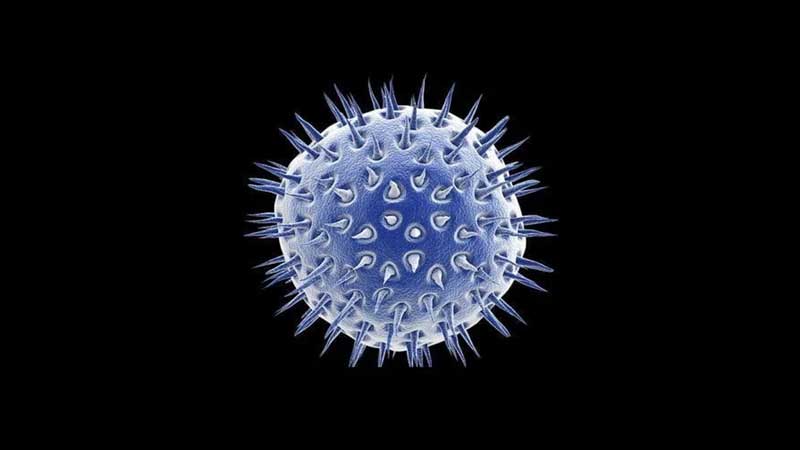Welcome to another post on our journey to explore the effectiveness of homeopathy, backed by scientific evidence. Today, we delve into a fascinating study titled “The Hydra-Headed Coronaviruses: Implications of COVID-19 for Homeopathy” by Silvia Waisse and her team, published in 2020.
This study provides a unique perspective on the potential role of homeopathy in addressing the complex and multifaceted nature of COVID-19, and discusses how homeopathy, with its individualized approach, could potentially contribute to managing this complex disease.
Understanding COVID-19
COVID-19, caused by the SARS-CoV-2 virus, has proven to be a medical enigma. Unlike many diseases we have faced before, COVID-19 is not just a respiratory illness. It is a complex systemic condition that can affect any organ or system in the body. This complexity makes it a challenging adversary for traditional medicine and opens the door for alternative approaches like homeopathy.
Homeopathy and Epidemics: A Historical Perspective
Homeopathy has a long history of being used during epidemics. From Samuel Hahnemann’s treatment of scarlet fever in 1799 to more recent interventions in dengue fever and leptospirosis, homeopathy has often been a tool in the fight against widespread diseases. Central to this approach is the concept of the genus epidemicus (GE) – a homeopathic remedy that matches the collective symptoms of an epidemic and is used as a preventive measure.
COVID-19: A Kaleidoscopic Disease
However, identifying a GE for COVID-19 is a daunting task. The disease presents a kaleidoscope of symptoms that can vary widely from patient to patient. While some patients experience severe respiratory symptoms, others may have mild symptoms or even remain asymptomatic. This wide range of manifestations makes it difficult to pinpoint a single preventive homeopathic remedy.
Extra-Respiratory Manifestations of COVID-19
Adding to the complexity, COVID-19 can present a host of non-respiratory symptoms. These include neurological signs like stroke and impaired consciousness, ocular signs such as conjunctival hyperaemia, cardiovascular symptoms like myocardial injury, gastrointestinal symptoms, and even dermatological signs. These diverse manifestations further complicate the task of identifying a GE remedy.
Lessons Learned and Recommendations
The study by Waisse et al. offers valuable insights into the potential role of homeopathy in future epidemics. It suggests that while identifying a single GE for a complex disease like COVID-19 may be challenging, homeopathy can still play a significant role in patient care.
The authors recommend that homeopathic practitioners should be part of rapid-response teams during epidemics. They also suggest that homeopathy should strive to improve its integration with mainstream medicine. This could be achieved through proactive dialogue and collaboration with departments of integrative medicine at hospitals.
Conclusion
The study by Waisse et al. provides compelling evidence of the potential role of homeopathy in addressing complex diseases like COVID-19. It underscores the need for homeopathy to adapt and evolve in response to the challenges posed by such diseases.
While the task of identifying a single preventive remedy for COVID-19 may be daunting, the study suggests that homeopathy can still play a significant role in patient care during epidemics. It also highlights the importance of integrating homeopathy with mainstream medicine to provide a holistic approach to patient care.
As we continue to face the challenges posed by COVID-19, it is clear that we need all the tools at our disposal. Homeopathy, with its unique approach to patient care, can be one of those tools. As always, we encourage you to continue exploring and supporting research in homeopathy. Together, we can contribute to a healthier future.
Remember, homeopathy, like any other medical practice, is a science that evolves with research and evidence. It is not a one-size-fits-all solution, but a personalized approach that considers the unique characteristics of each patient and disease. This is particularly relevant in the context of COVID-19, a disease that has shown us a wide range of clinical manifestations and has challenged the global medical community.
The study we have discussed today is a testament to the ongoing research in homeopathy and its potential role in addressing global health challenges. It’s a call to action for homeopathic practitioners and researchers to continue their work, to collaborate with mainstream medicine, and to contribute to our collective understanding of diseases like COVID-19.
In conclusion, the fight against COVID-19 is a collective effort that requires the best of all medical fields, including homeopathy. As we continue to navigate this pandemic, let us keep our minds open to all possibilities, backed by scientific evidence, that can contribute to the health and well-being of all. Let us continue to support and explore evidence-based homeopathy and its potential role in creating a healthier world.
Thank you for joining us on this exploration of homeopathy and COVID-19. We hope this post has provided you with a deeper understanding of the potential role of homeopathy in addressing this global health challenge. As always, we encourage you to continue learning, asking questions, and supporting scientific research in all fields of medicine. Together, we can make a difference.

